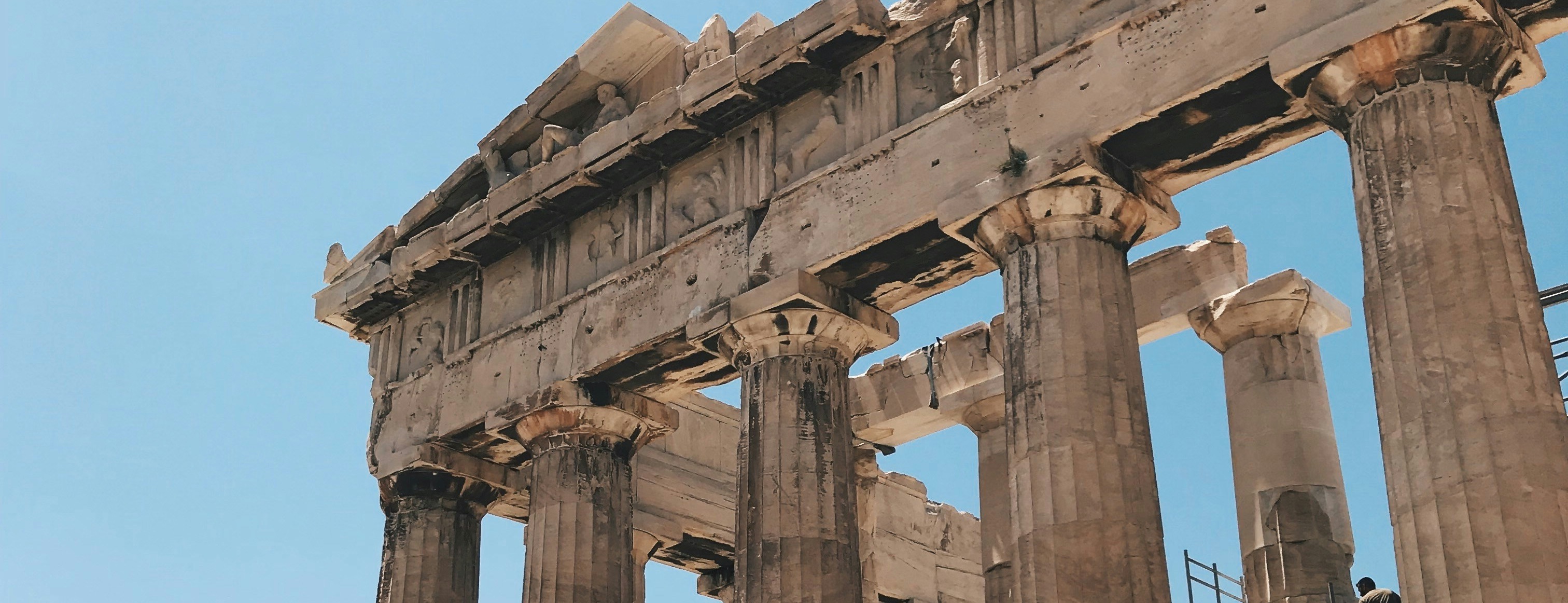
Other Worlds Than These
2025-04-10
Exploring how virtual reality can preserve ancient ruins and historical moments
Reality is often disappointing.
We travel hundreds to miles to visit ruins of places long since passed. Travelling to Stonehenge, I remember feeling this sense vividly. It pained me to see something that would have been considered a marvel in its time so destroyed. My heart wanted it to be restored but my head understood why it should not be.
As someone who suffers from aphantasia, this is felt even more acutely. I found the reconstructions in the musuem nearby much more interesting than the real thing.
The truth is its time has passed. The Gods to whom such places are built are, if not forgotten, no longer revered. In a sense, their world is gone. Their God was as real as the people who remember them are. The loss of one means the loss of the other and their sacred places. Yet, we care for their ruins because one day that fate will befall us. They were once us, thinking their world and their gods would last forever. By honoring their ruins, we honor their memory. We wish others will honor ours.
We do not restore ancient monuments for various reasons including:
- The ruin is authentic - restoration become false replicas
- We do not know exactly how a monument should be restored, any incorrect restoration may be permanent
- It is expensive.
The last point to me is especially salient. Would the Parthenon have more visitors if it looked as it did in its prime? Perhaps. Yet, even if such a feat could be accomplished, would you wish it to? It would be incredibly expensive, and maintenance would be doubly so. Would that be a worthwhile investment for the Greek state? It may not increase tourism enough to pay it back. Perhaps that money would be better invested in something more productive for the Greek people of today.
The truth is, these temples were built and maintained in their time because they meant something to the people who built it. Their destruction and decay is partly because they no longer fulfill the same purpose. It is generally not a worthwhile investment to rebuilt monuments to the past, because they are just that, monuments to the past.
Ancient sites that are still revered today are still worth the cost of maintenance because they are still providing meaning to the people of today. Yet, that does not mean we should forget our history. They should be preserved and in more than just ruins and decay.
Modern technology allows us to preserve things in ways that were never possible before. It allows us to experience things as our forefathers would have. We may never capture the full essence of what it meant to them, but we can try. The process of building virtual similacrum of historic sites is easier than it seems. The hard part is ensuring it is historically accurate.
In a virtual world, the costs of maintenance are astronomically lower. In a virtual world, you don’t have to worry about earthquakes or structural integrity. In a virtual world, the ruin can still exist. In a virtual world, we do not have to destroy to create.
Virtual reality reduces the arguments against restoration to practically nil. Our history should be preserved. Virtual reconstructions may never be perfect, but they are the best we have. We could create some really engaging methods of introducing people to the past.
-
You could visit the Oracle at Delphi and be granted an audience with her. She could give you an prediction based on your own life as she might have done if you had visited her.
-
You could stand beside Napoleon as his forces win at Austerlitz. At a critical moment, he may send you into the fray yourself to shore up the line.
-
You could watch as the senators pounce on Caesar. You can experience first-hand the people fleeing in terror as you approach in triumph at the death of the dictator.
Virtual reconstructions are not limited to places, you can reconstruct events as they happened. You can experience them as someone might have done at the time, or be a fly on the wall to the greatest moments in history.
No reconstruction is unbiased, and such a project ought to be open-source to allow people to create their own unique experiences and create peer-reviewed history.
Historians have a part to play here. For centuries the role of the historian is to interact with primary sources and compile these into a narrative. The medium has been the written word. This change would radically alter that dimension. Their input is most valuable. There is already a distinction between pop history and “real” history and it will be important to attempt to thread the needle between conflicting evidence, speculation and uncertainty.
It is more than just possible. It is right there for the taking. If we don’t build it open-source, someone will build it private. Like we have seen with social media, once the digital infrastructure is built and the users onboarded, it can be very difficult to reclaim control. The gatekeepers tighten their grip. The algorithms shape our memory.
If history is written by the victors, let us be the ones who win.
Enjoyed this post? Share it with others!
Share